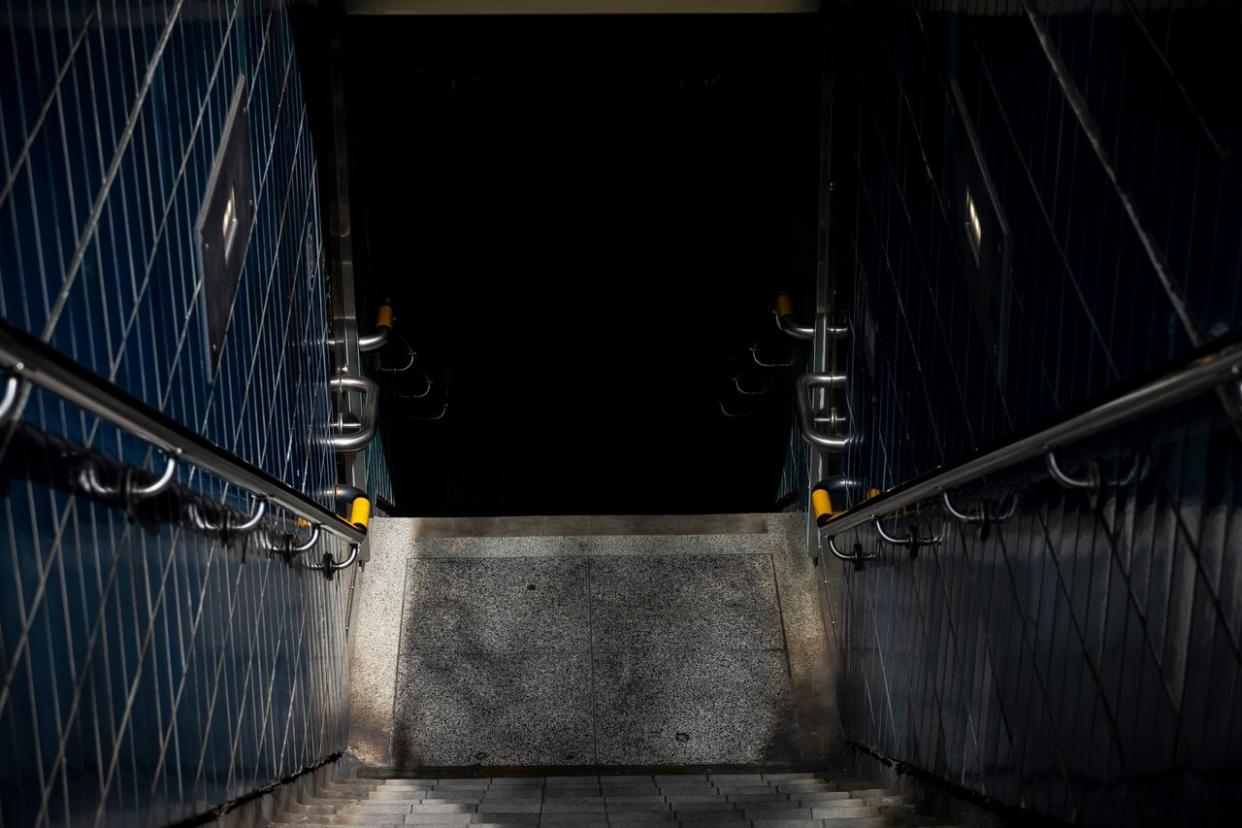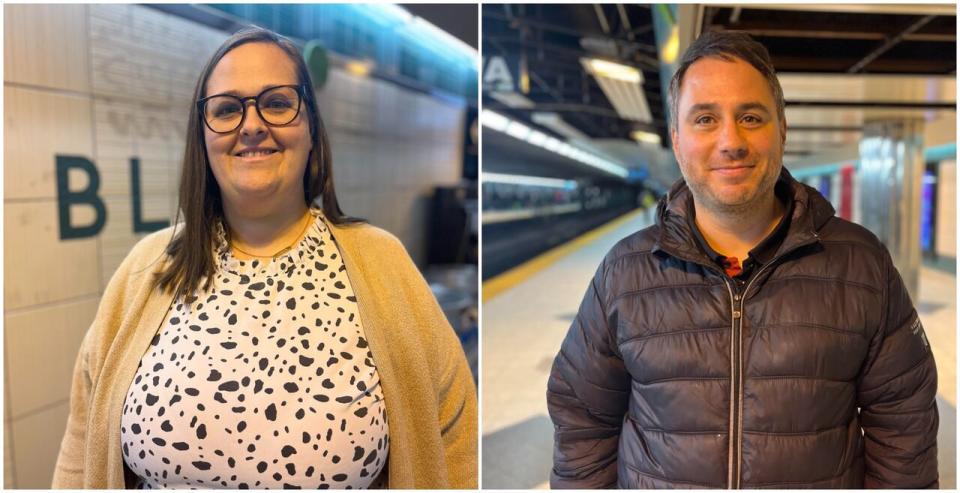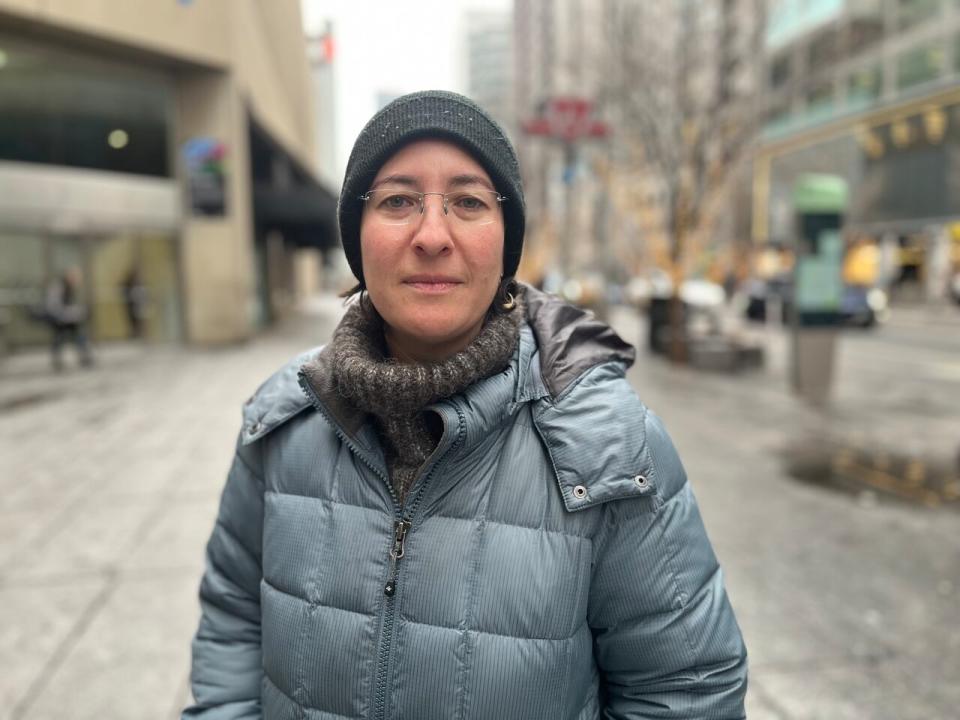City extends program to support unhoused people on TTC with case workers

The City of Toronto is extending a pilot program that sends outreach workers into the city's transit system to respond to the growing number of unhoused people using the indoor space for warmth and shelter.
In March city officials announced a one-year partnership with the TTC and LOFT Community Services to use case workers to provide more support to people struggling with homelessness and mental and physical health challenges.
The city and the TTC are now bolstering the program, itself an extension of LOFT's Multidisciplinary Outreach Team (M-DOT), with another $500,000 in funding to extend it to March 2025.
"With a lack of indoor and shelter spaces, people are turning to the indoor spaces such as the TTC to shelter, keep warm, especially during the winter months," said Ryan White, LOFT's program manager of mental health and homeless services.
A spokesperson for the city said in an email statement to CBC Toronto that Toronto's shelter system is at capacity and an average of 291 people are unmatched for shelter space each night. With nowhere to go, many turn to the TTC for shelter.
White says the program — which provided M-DOT with three new case workers, a nurse from Inner City Health Associates (ICHA), and three days a week of psychiatric services for individuals needing more complex and longer-term support — has already had some measure of success.

Sarah Collins and Ryan White, who are in charge of LOFT's mental health and homeless services, say the pilot TTC outreach program has produced hundreds of engagements. (Patrick Swadden/CBC)
According to data provided by the city, the program has engaged with 290 people on the TTC since May 2023, and 145 have consented to services provided by M-DOT.
"We are right down there in the system, walking around, engaging with folks wherever they may be and then following them as they also go out into the community," said Sarah Collins, LOFT's director of mental health and homeless services.
Collins said the case workers provide a multifaceted approach to clients in the TTC, helping them navigate health care, housing and legal challenges.
"We work with clients who touch many different systems," said Collins.
Dr. Michaela Beder, a psychiatrist and the director of mental health and substance use care at ICHA, said the M-DOT case managers build relationships with individuals to understand what they really need.
"In order to support the complex population we work with, we really need to have an integrated team approach," said Beder, adding she has been part of the M-DOT team for five years and does outreach one day a week.

Dr. Michaela Beder, a psychiatrist and the director of mental health and substance use care at ICHA, says the M-DOT case managers build relationships with individuals to understand what they really need. (Patrick Swadden/CBC)
Beder said while the program expansion allows them to spend more time in the transit system assessing clients, the city is in dire need of more housing solutions as Toronto contends with a growing homelessness problem.
"There are a lot of people all across the city experiencing homelessness who desperately want housing, desperately want to be in a shelter, but when we call there aren't enough shelter beds," said Beder.
A Band-Aid solution: advocate
Others say that while the added case workers can provide much needed benefits to those sheltering on the TTC, they are only a Band-Aid solution to the larger issue of housing affordability and a lack of adequate shelter space.
"All these kinds of supports are only as effective as our ability to house people," said Fatima Hussain, an organizer with the Encampment Support Network Parkdale.
Hussain said a lot of the challenges faced by unhoused people are rooted in having to live on the street without access to daily services.
"Now they can maybe see a doctor, but they're still sleeping on the subway. You haven't fixed the root problem," said Hussain.
Beder said the primary role of the work is to help people get housing, and in the interim, get them into shelters. But, she adds, availability of space is the biggest hurdle.
"I think where the big gaps still exist is that there are not enough shelters," said Beder.
The program's organizers are still excited about their progress and the opportunity to develop long-term relationships with unhoused clients.
"We started in March and we're now into December — I think it's been very successful in meeting clients where they're at," said White.
The city anticipated the program would help about 80 to 100 people experiencing homelessness in Toronto.
While M-DOT has engaged many on the TTC since the program's start, Collins said there are 60 individuals currently enrolled that M-DOT is actively working with on an ongoing basis.

